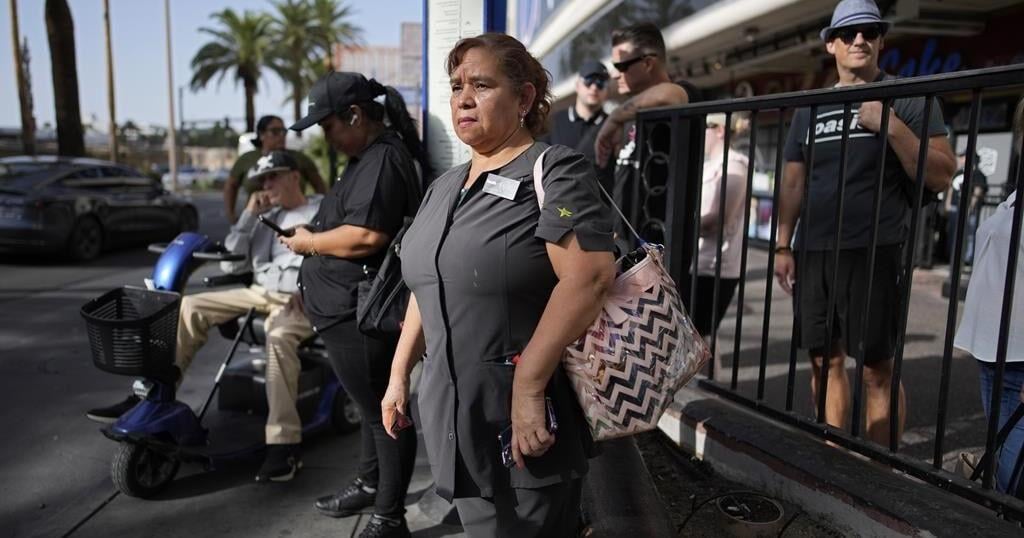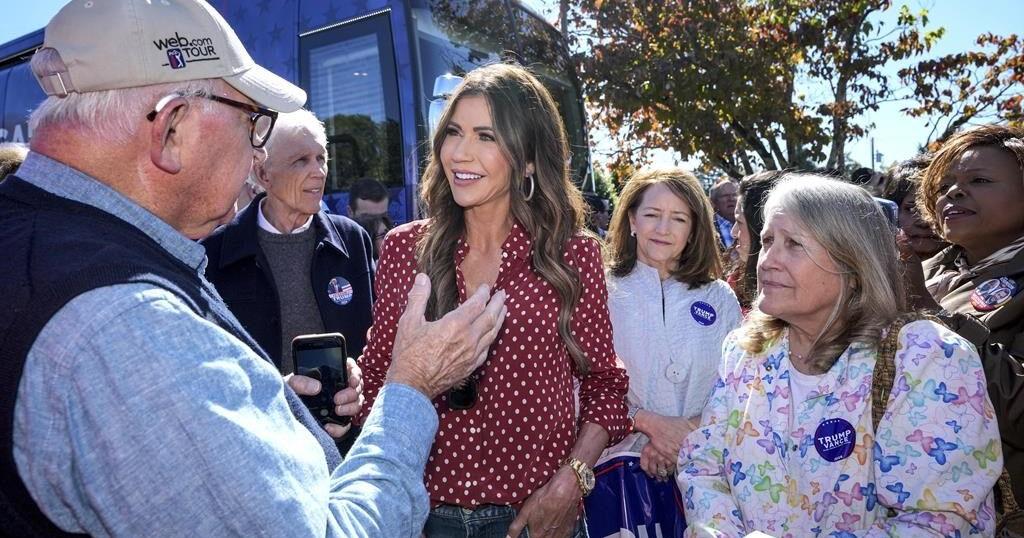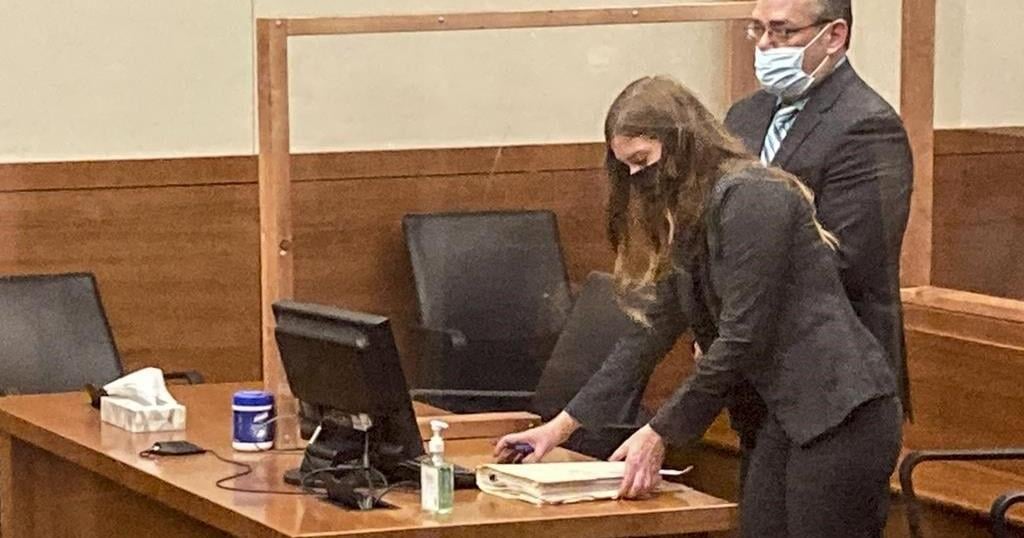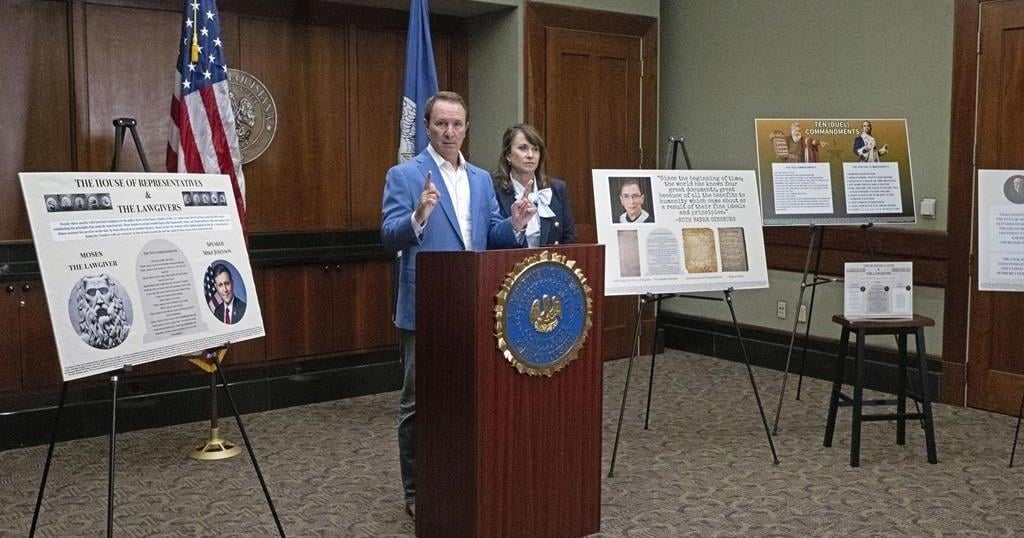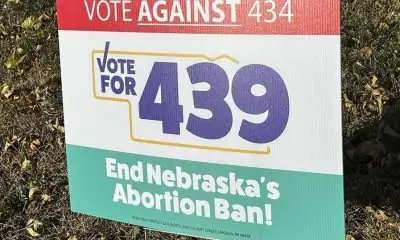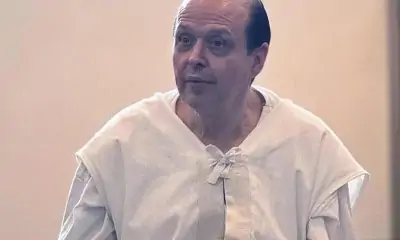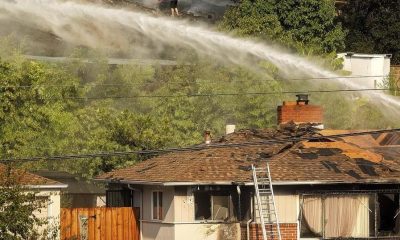BAKER, Nev. (AP) — Few things say America like Janille and Tom Baker’s ranch, with its grazing cattle, scrub brush-dotted desert and snow-capped mountains.
If only they could get American citizens to work on it.
The ranch in remote eastern Nevada produces around 10,000 tons of hay annually, and combines cowboy culture with a dash of Manifest Destiny. Rabbits, gophers and the occasional badger always outnumber humans and the nighttime sky is dark enough to count the stars.
But the Bakers’ business couldn’t survive without an agricultural guest worker program that brings in Mexican immigrants for about nine months a year to help harvest crops in fields where temperatures frequently exceed 100 degrees Fahrenheit (37.8 Celsius).
“When people complain that foreign workers are taking their jobs, I roll my eyes,” said Janille Baker, who manages the ranch’s accounting. “In any industry, everybody’s trying to find help. So this anti-immigration stance doesn’t really make sense to me. If everyone needs workers, how are you planning to fill those jobs?” The ranch follows federal rules that require advertising available positions and making them available first to U.S. citizens. But in the last six years, only two Americans called to inquire about jobs. A third trekked out in person, but left after seeing what the work entailed.
Immigration has become a source of fright and frustration for voters in this presidential election — with possible outcomes that could take the United States down two dramatically different paths. Nowhere are the stakes higher than in Nevada, where 19% of residents are foreign-born and around 9% of the total workforce doesn’t have U.S. legal status.
The influx of illegal border crossings has strained city and state resources across the nation, even in Democratic strongholds. And yet immigration has fueled job growth in ways that strengthen the economy and improve the federal government’s fiscal health.
So black and white in the candidates’ rhetoric, immigration is actually incredibly complex in reality — a fact that reveals itself every day in Nevada.
Voters say it is among their most important issues in November. How they come down on immigration, choosing former President Donald Trump ’s hard-line proposals for mass deportations or Vice President Kamala Harris ‘ calls for a path to citizenship for millions of people in the country illegally who have been here for years, will go a long way toward determining the outcome.
Nearly 300 miles or 480 kilometers south of Baker Ranch, neon-saturated Las Vegas had almost 41 million tourists visit last year, and is seeing the issue of immigration play out differently, but with distinct parallels.
“There’s a lot of fear,” said Nancy Valenzuela, a 48-year-old maid who works at the Strat casino. “There are people who don’t have papers. They’re like, ‘They want to throw us all out.’”
Valenzuela plans to vote for Harris. But others can only watch and hope their way of life isn’t turned upside down. “We’re here, propping up the country so the economy doesn’t crash,” said Haydee Zetino, who scrubs lavish hotel suites at Harrah’s Casino on the famed Las Vegas strip. She is an immigrant from El Salvador with only temporary protected U.S. status and can’t vote.
Absolutes sweep away nuance
If Trump deported all 11 million immigrants without legal status in the U.S., as he has suggested, the collateral risk could extend to the entire economy. Nevada’s job losses alone might nearly equal what it suffered during the 2008 financial crisis. More than 10% of Nevada’s population lives in homes with at least one immigrant in the country illegally, according to estimates from the advocacy group Fwd.us.
“In our wonderful, 24-hour economy, we know that these hotels and casinos could not, should not, would not be able to open every day without immigrants,” said Peter Guzman, president and CEO of the Latin Chamber of Commerce in Nevada.
Trump could also revive pushes he made during his first term to cancel programs that have extended temporary legal status to Zetino and hundreds of thousands of others.
Harris has called for humane treatment at the border, particularly for children and families, and for letting longtime immigrants get citizenship. But she’s also promised to revive a bipartisan package that Trump forced congressional Republicans to squash, which sought to provide $20 billion for immigration enforcement and tightened rules for immigrants seeking U.S. asylum.
Recent Biden administration orders have imposed asylum restrictions when the border is overwhelmed. The vice president recently walked the border with Mexico in Douglas, Arizona, and called for getting tougher than Biden has — despite his administration having seen arrests for illegal border crossings fall sharply in recent months, even approaching levels recorded during Trump’s final year in the White House.
Polling released last month by The Associated Press-NORC Center for Public Affairs Research showed Trump has an advantage over the vice president on who voters trust to better handle immigration 44% vs. 37% — a gap Harris’ campaign has sought to narrow by moving harder to the middle on the issue.
Immigrants say a bipartisan push toward getting tougher at the border has clouded the larger issue in ways often too complicated to break down easily along ideological lines.
“I think that our focus is completely directed into the border and not toward the people who are already here and have been here for many, many years,” said Erika Marquez, immigrant justice organizer for the advocacy group Make the Road Nevada, and a recipient of the Deferred Action for Childhood Arrivals program, an Obama-area effort giving limited protections to immigrants brought to the U.S. as children.
The Pew Research Center estimates that 11 million people in the country illegally live in the U.S. Big states like California, Texas and Florida have larger numbers who potentially could have even more influence on workforces and communities. But all of those states are all solidly red or blue in presidential races — and aren’t likely to sway the election as toss-up Nevada might.
Clark County, encompassing Las Vegas, is about 75% of the state’s population and includes a sizeable number of hospitality industry workers represented by Nevada’s powerful Culinary Union, which has endorsed Harris.
But Trump is hoping to turn out infrequent voters there, and do very well in much of the rest of the state, which tends to be rural and conservative. Washoe County, home to Reno, is a perennial toss-up, though. And voters can also choose “None” of the presidential candidates, adding to the Nevada electorate’s famously fickle nature.
Maria Nieto, president of the Young Democrats of Nevada, also got Obama-era protections for immigrants who arrived as children. She said she was always taught while growing up never to talk about her legal status. Now, however, Nieto, is making a point of using her story to motivate people to exercise voting rights she doesn’t have.
“At times, I think that people don’t realize how personal this is,” she said.
The post-Election Day economic consequences might be even more dire.
A group of researchers led by Warwick J. McKibbin, an economics professor at the Australian National University, found that removing workers in the U.S. illegally would sharply reduce labor supply in the mining, agriculture, services, and manufacturing sectors. Deporting even 7.5 million workers might slash Real Gross Domestic Product by 12%.
If Nevada lost all of its workers in the country illegally, Labor Department figures suggest the direct job losses would be roughly as large as those from the 2008 financial crisis, which stalled tourism, triggered a wave of housing market foreclosures and cost the state about 9.3% of its jobs during the subsequent Great Recession.
And rounding up people in the country illegally may not even count people like Zetino, Marquez, and Nieto, nor the guest workers at Baker Ranch, all of whom are authorized to be in the U.S.
Zetino, 62, gained temporary protected status since arriving after a major 2001 earthquake in El Salvador, but saw Trump try to remove it during his term.
“These people don’t have any conscience,” she said of mass deportation supporters. “They believe they can lift up the country, move the economy forward, but they don’t think of those at the bottom.”
‘No issue with people who want to come here legally’
Trump has made border security an unofficial anthem of his campaign, constantly decrying an “ invasion ” of people flooding into the country illegally. At the same time, he’s endorsed more temporary visas for qualified foreigners, saying at a recent town hall with Spanish-language Univision, “We want workers, and we want them to come in, but they have to come in legally, and they have to love our country.”
But the former president also has lately stepped up his attacks on people with temporary protected status, including spreading falsehoods about Haitians legally living in Ohio abducting and eating pets, and threatening to deport them should he win in November. Trump has further stoked tensions by suggesting that immigrants coming into the U.S. illegally are doing so to expressly take jobs from Black and Hispanic Americans.
Still, some of Trump’s top supporters in Nevada are more careful to make distinctions between immigrants here legally and not. That includes former North Las Vegas Mayor John Lee, who has been endorsed by Trump as he runs for Congress and acknowledged of his state: “We are running out of labor force right now.”
“We have no issue with people who want to come here legally,” Lee said. “We’ll train them and they’ll work, and we see all the joys of America that way.” But he said people in the country illegally, by contrast, have contributed to higher crime rates, including construction sites being burglarized.
Other conservatives are more explicit about the economic damage tougher immigration policies might do, though.
Guzman, of the Latin chamber, has organized forums examining how construction in Las Vegas has been slowed by not being able to find enough workers. He’s pushed for expanding guest worker programs, noting on a call with an advocacy group, “I’m a registered Republican, and we are not all the same on this issue.”
Florisela López Rivera has seen that nuance firsthand and worries about politics overwhelming decency.
A dishwasher at Wynn Casino in Las Vegas, López Rivera is originally from El Salvador and got temporary protected status after Hurricane Mitch’s devastation in 1998. She recently gained permanent U.S. residency after her wife became a citizen, which means she’s unlikely to face deportation under any circumstances.
López Rivera is a member of the Culinary Workers Union, which represents 60,000, majority-Hispanic workers in Las Vegas and Reno. A Harris supporter, López Rivera canvasses for her union to advocate for the vice president, stressing Harris being the daughter of immigrants.
She speaks Spanish while knocking on doors and says that she encounters some people who tell her, “I love Trump.” Even then, she tries to engage them rather than simply turning away.
“When we focus on the negative, we lose the human side of things,” López Rivera said.
Bipartisan support for stricter border security
Harris’ calls for tightening asylum rules and stepping up enforcement at the border underscore just how much voters backing both parties want a strong hand there.
“Everybody I know, Republican or Democrat, believes border security is important,” said Edgar Flores, a Democratic Nevada state senator and immigration attorney. “We have real problems with drugs, with gangs, with violence.”
But move even partially toward mass deportations, Flores said, and “you’re going to disturb the most essential industries in Nevada, and that’s going to be replicated around the country.”
Marquez, of Make the Road Nevada, said her organization accepts that there need to be stiffer controls at the border, but added, “I think a lot of people — and Trump himself — have this irrational idea that we are here and we are not good people.”
“We are all working class,” said Marquez, who was born in Leon, Mexico, and immigrated at age 3, when her grandmother paid smugglers to take her and her then-pregnant mother into the United States. “All we want is being able to supply food, shelter and a good education for our children and just to be able to grow as a community.”
A recent Scripps News/Ipsos survey found that 86% of Republicans “strongly” or “somewhat support” mass deportations, but so do 25% of Democrats. Overall, 54% of voters support removing potentially millions of people from the country, topping the 42% who oppose it, while a third of Americans see securing the U.S.-Mexico border as the country’s top immigration priority, the survey found.
‘You can’t get anyone to come do the work’
Back on Baker Ranch, the H-2A visa program brings immigrant workers to the fields. They harvest hay, control weeds and irrigate with wheel lines moved by hand, or fully hand irrigate, building small dams using tarps they drag to different areas so that crops can be better submerged in water.
During Trump’s first term, the H-2A program’s participation rose, but he also proposed a rule just before the end of his term that would have frozen farmworkers’ salaries for two years, loosened requirements for worker housing and restricted the transportation costs they could be reimbursed for. The Biden administration wiped those out, but imposed new rules it says can better protect workers and has seen participation climb even higher.
Tom Baker co-owns the ranch with his brothers, and it began operating in 1954, nearly two decades before the area was electrified. He calls it “hard, hot work” that’s “kind of miserable.”
“These kinds of farms, without immigrants, would become infeasible because you can’t get anyone to come do the work,” said Baker, 54. “The wage isn’t the issue. It’s whether people will come do the job.”
The soil — enriched by hot days and nights that turn cooler because of higher elevations — can make for superior hay, some of which goes to race and polo horse centers like West Palm Beach, Florida, home to Trump’s Mar-a-Lago club.
The ranch has 26 employees, including five current H-2A immigrant workers. Many of the oldest ranch hands arrived long enough ago to get U.S. legal status through 1980s programs. Some have children who were born in the U.S. and are citizens, even if one or both of their parents are not.
The guest workers declined to comment, not wanting to attract undue attention. Still, three generations of immigrant workers at the ranch largely hail from the towns of Apozol and Juchipila in north-central Mexico.
The original arrivals now have grown children. Some of them work at the ranch and have had their own children who are now in high school and work there themselves during the summers. One former employee’s wife had her baby in a ranch vehicle on the way to the hospital, about 80 miles away.
Janille Baker, 51, is no fan of Trump, but also has at times become exasperated with Biden administration regulations. Those include small things like immigrant living quarters being required to have screen doors, despite being air conditioned and already equipped with screens on the windows.
“It is a hot potato and each side’s lobbing one at the other. And, in all honesty, both are to blame,” she said of immigration. “There is going to come a point where it has to get taken care of. You can’t just keep using fearmongering and scaring people, and then being critical of the people who do or don’t want to do whatever jobs.”
___
Associated Press writer Josh Boak in Washington contributed to this report.

